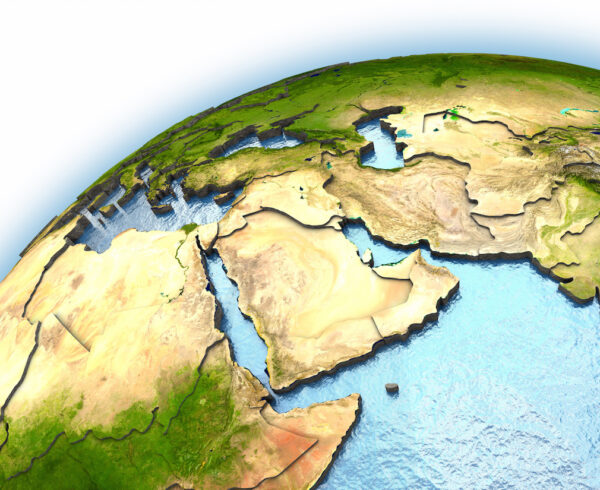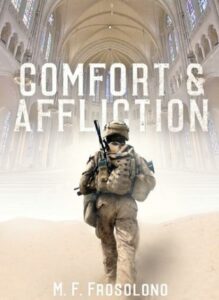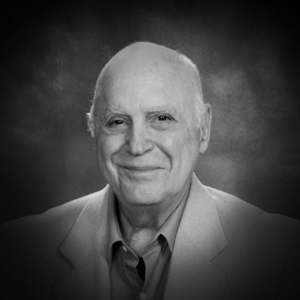The recent and continuing tragic, but not completely unexpected, events in Paris and Europe confirm that a state of war exists between the western democracies (e.g., the United States, the United Kingdom, Germany, and France) and a militant subset of Islam (e.g., the Islamic State—IS, ISIS, ISIL, Daesh— and Al Qaida.) No amount of obfuscation, imprecise language, or liberal sensitivities can hide the obvious: Islamic State has declared war on the United States and its western democratic allies, and this subset of Islam carries out offensive attacks well outside the “caliphate” in Syria and Iraq.
Christianity may no longer be the predominant religion in Western Europe, or even in the United States. Even so, the national and political goals of the western democracies and Christianity have great congruence: Individual and national liberty, religious freedom, freedom of thought and expression, and free elections through which the people choose their governments and political leaders.
We need to understand: (1) Islamic State is not a “junior varsity” international terrorist organization and (2) the state of war arose and will continue not primarily due to real and perceived Christian subjugation of Islamic lands and people but, rather, because western democracies—as exemplified by Christianity— and Islam have conflicting goals. I previously wrote, in this blog and in other forums, about these opposing goals. The events in Paris and the intensifying struggle with Islamic State provide an opportunity for some recapitulation in this post.
Islamofascism
Islamic State, Al Qaida, and similar organizations form a violent subset of Islam that can be described as Islamofascism. To the best of my recollection, I first came across the term, Islamofascist, in a column Mr. Thomas Friedman wrote for The New York Times. The derivation and meaning of Islamofascism can be summarized as follows:
Allah refers to the Islamic monotheistic deity.
Islam comes from the Arabic language and means surrender or submission to the will of Allah.
Mohammed or Muhammad was Allah’s messenger or prophet.
The Qur’an or Koran contains Allah’s word to Mohammed through “divine” revelation in the Arabic language and is the holy scripture or bible of Islam.
Caliph is a Muslim ruler whose authority comes through Mohammed. Caliphate, therefore, refers to the territory over which a caliph rules.
Fascism, previously best exemplified by Nazi Germany under Adolph Hitler and Italy under Benito Mussolini, refers to a political ideology that rejects ideas such as freedom and individual rights: Fascists advocate the elimination of elections, legislatures, and other elements of democracy.
Islamofascists come from Islamic fundamentalism; adherents consider themselves the moral guardians and saviors of their societies, and profoundly mistrust all notions of human progress. Such ideas oppose Allah’s divine action and intervention in the world. All nations must implement the will of Allah as interpreted only by Islamofascists, who definitely do not accept the principle of separation between church and state. Islamofascists, therefore, do not believe in theocratic or political free will as expressions of human freedom of choice.
Islamofascists intend to use all means possible, including terrorism and military conquest, to form a one-world government or caliphate under Islamic authority. Islamic State, a thoroughly Islamofascist organization, has established a regional caliphate in a large area of Syria and Iraq as a first step in forming this worldwide caliphate.
A Little History and Theology
From its beginnings, Islam has been tainted with militarism as a feature of the religion’s propagation. Mohammed started preaching his visions in AD 610 at Mecca, located in what is now modern Saudi Arabia. By the early eighth century, Islam had used military conquest to dominate a wide area from the fringes of China to France. A Christian army led by the Frankish king Charles Martel halted Islamic expansion into Europe at the battle of Tours in AD 732. Subsequent military conquests over a prolonged period brought Islam into the Balkans in Eastern Europe.
Essential features of Christianity and Islam necessarily thrust these two world religions into a centuries-old contest for allegiance. The theological basis for this struggle arises from two opposing imperatives: (1) Christians believe the Great Commission stated in Matthew 28:18-20 commands them to bring the entire world to Christ versus (2) Islamists’ belief in Allah’s call to convert the entire world to Islam. Keeping in mind that the objectives of both religions are basically the same, the strategy and tactics employed by each become critically important: conversion by non-violent persuasion versus military conquest and other forms of violence. Differing tactics implement differing strategies that lead to the objectives of Christianity and Islam.
Islam, like Christianity, encompasses a broad spectrum of internal beliefs ranging from liberal through conservative to fundamentalist. Each religion has dirty hands from past acts of extreme violence, one against the other. Nevertheless, leaving some religious idiots aside, the main thrust of modern Christianity does not preach conversion by military conquest. In contrast, Islamic State—a thoroughly Islamofascist movement—employs the strategy that all non-Islamists should be killed or expelled from Islamic lands followed by conversion of the world to Islam. Violence constitutes a compelling tactic for this forced conversion.
Even if not sought, Christians again find themselves caught up in a full-blown religious war that began in AD 610. Christians and Islamic State see reality through diametrically opposed definitions of rationality concerning the strategy and tactics for conversion of the world to Christ or to Allah. The nature of Islamic State argues against changing its strategy and tactics through reasonable discourse, and certainly not through gentle persuasion.
Christians can be considered a subset of the populations within the western democracies, many of whom, like France, are fervently secular in nature. This fact notwithstanding, Islamic State considers the western democracies as infidel lands that must be converted to Islam by any tactics necessary. Islamic State, therefore, engages in a religious war against the western democracies: These countries are antithetical and abhorrent to Islamic State because the foundational characteristics of the western democracies are impediments to Allah’s will.
The Way Forward
Sun Tzu was a Chinese military general, strategist, and philosopher who lived in the sixth century BC. Military strategists still read the book attributed to him, The Art of War. One of his more famous pronouncements is: “If you know the enemy and know yourself, you need not fear the result of a hundred battles. If you know yourself but not the enemy, for every victory gained you will also suffer a defeat. If you know neither the enemy nor yourself, you will succumb in every battle.”
I can easily argue that the United States in common with its western democratic allies, definitely does not know the true nature of Islamic State. President Obama’s statements prior to the Paris attacks reflect a fantasy, or a willful distortion of reality: Islamic State is not a junior varsity of Al Qaida and Islamic State has not been contained to the “caliphate” areas of Syria and Iraq. Most of our leaders and citizens—both liberal and conservative—apparently fail to understand that Islamic State theology has been integral to Islam since its beginnings. This theology derives from coherent and even learned interpretations of Islam. A common belief that Islamic State theology and actions are simply nihilistic and irrational obscures the nature of our enemy. Fatuous declarations that Islam is a peaceful religion in which Islamic State constitutes an aberrant and disdained minority of adherents have already led the United States to underestimate Islamic State and to back foolish schemes to counter it.
As illustrated by our current political campaign leading to the 2016 elections, I don’t think we understand ourselves with respect to knowledge about Islamic State and the objective, strategy, and tactics we should use to combat this malignant non-contained organization. Despite the allure military action might hold for us, bombs, bullets, “boots on the ground,” etc., cannot in and of themselves subdue, much less destroy, the powerful idea that attracts people to Islamic State—the formation of a worldwide caliphate by any means necessary.
Vigorous and smart military actions will be an integral part of the tactics we must employ to defeat and truly contain Islamic State; however, the contest of ideas will be the main battlefield. We haven’t shown ourselves adept on the battlefield of ideas, probably because we mistakenly think the value of human freedom is self-evident to everyone.










